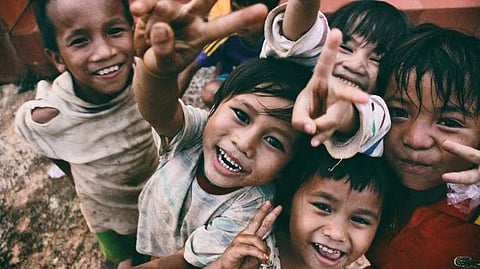

At least 200 million school children live in 31 low and middle-income countries that remain unprepared to deploy remote learning in future emergency school closures, a new UNICEF report revealed on October 27.
Even then, several students, about 102 million, live in 14 countries that have kept their schools fully or partially closed for at least half of the COVID-19 pandemic — locking many school children out of any kind of education.
The Remote Learning Readiness Index measures countries' readiness to deliver remote learning in response to disruptions of in-person education, covering almost 90 per cent of students in low and lower-middle-income countries. The analysis focuses on three domains — the availability of home-based assets and parents' education levels, deployment of policies and training for teachers, and the education sector's preparedness for emergencies.
"Even in the midst of an ongoing emergency, we know there will be another one, but we aren't making enough progress to ensure the next time students are forced out of the classroom, they have better options," said Henrietta Fore, UNICEF Executive Director and added, "While disruptive, the past 19 months have given us a glimpse of what is possible during and after the pandemic. Together with partners, we have been hard at work to leverage the power of technology and to provide learning opportunities for children and young people everywhere."
READ ALSO : UNESCO, UNICEF say closed Afghan girls' schools violates fundamental right to education
Benin, Burundi, Cote d'Ivoire, Congo, Ethiopia, Madagascar, Malawi, Niger and Togo are among the countries with the most significant need for improvement within the education sector. During the COVID-19 pandemic, the impact of lack of remote learning readiness was especially felt by students living in countries where schools were fully or partially closed for at least half of the past 19 months, such as Congo and Madagascar.
The report outlines the limitations of remote learning and inequalities of access, warning that the situation is likely far worse than the available data shows. Beyond the countries assessed, anecdotal and qualitative data reveals that learners have faced challenges with remote learning globally, including in higher-middle and high-income countries.
Other key findings from the report include, "Of 67 countries assessed, 31 countries are not ready to provide remote learning at all levels of education, with school children in West and Central Africa most affected; 17 countries have average readiness and 19 countries have above average readiness."
Pre-primary education is the most neglected level of education, with many countries not deploying a corresponding policy during COVID-19 lockdowns, leaving behind the youngest learners during their most critical years of development, UNICEF said.
It further added that other crises, such as those caused by climate change, can also significantly impact access to education. Of the 31 countries, 23 countries also face high or extremely high exposure to climate and environmental shocks, putting 196 million school children at greater risk of school disruptions in emergencies.
